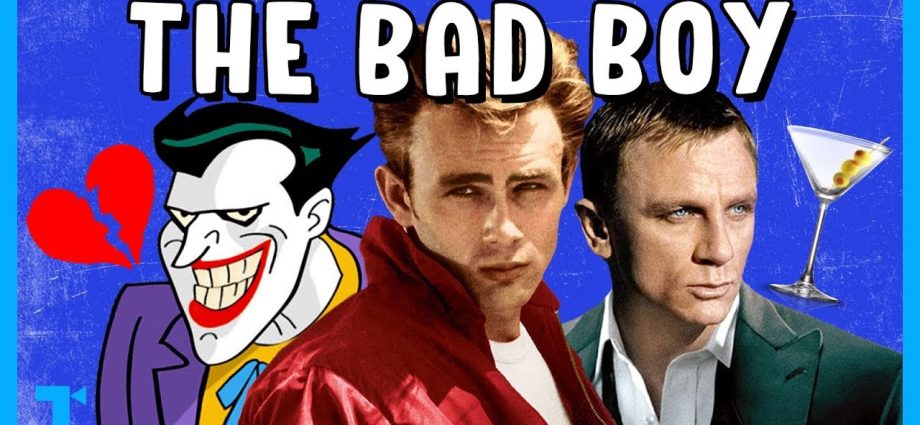Thor, Harry Potter, Superman — it’s understandable why we like positive images. But why do we find villains attractive? Why do you sometimes even want to be like them? We deal with the psychologist Nina Bocharova.
The attractive images of Voldemort, Loki, Darth Vader and other «dark» heroes touch some hidden strings in us. Sometimes it seems to us that they are like us — after all, they were rejected, humiliated, neglected in the same way. There is a feeling that for those who are “on the bright side of the force”, life was initially much easier.
„Хероји и зликовци се никада не појављују сами: то је увек сусрет две супротности, два света. И на овом обрачуну снага граде се заплети филмова светске класе, пишу се књиге“, објашњава психолог Нина Бочарова. „Ако је све јасно са позитивним ликовима, зашто су онда негативци интересантни гледаоцу, зашто неки заузимају своју „мрачну“ страну и оправдавају своје поступке?“
Поистовећујући се са зликовцем, човек несвесно са њим проживљава искуство какво се ни сам не би усудио.
The fact is that the «bad guys» have charisma, strength, cunning. They were not always bad; circumstances often made them so. At least we find an excuse for their unseemly acts.
„Негативни ликови су, по правилу, веома емотивни, храбри, снажни, паметни. Увек узбуђује, изазива интересовање и упада у очи“, каже Нина Бочарова. Злобници се не рађају, они се стварају. Нема лоших и добрих: постоје потлачени, изопћени, увређени. А разлог за то је тешка судбина, дубока психолошка траума. Код особе то може изазвати саосећање, саосећање и жељу за подршком.
Each of us goes through different stages in life, experiences our own traumas, gains experience. And when we look at bad heroes, learn about their past, we unwittingly try it on ourselves. Let’s take the same Voldemort — his father abandoned him, his mother committed suicide, did not think about her son.
Compare his story with the story of Harry Potter — his mother protected him with her love, and knowing this helped him survive and win. It turns out that the villain Voldemort did not receive this power and such love. He knew from childhood that no one would ever help him …
“If you look at these stories through the prism of the Karpman triangle, we will see that in the past, negative characters often ended up in the role of the Victim, after which, as happens in the drama triangle, they tried on the role of the Persecutor in order to continue the series of transformations,” says expert. — The viewer or reader can find in the «bad» hero some part of his personality. Perhaps he himself went through something similar and, sympathizing with the character, will play out his experiences.
Поистовећујући се са зликовцем, човек несвесно са њим проживљава искуство које се сам не би усудио. И то чини кроз емпатију и подршку. Често нам недостаје самопоуздања и, испробавајући слику „лошег” хероја, усвајамо његову очајничку храброст, одлучност и вољу.
То је легалан начин да разоткријете своја потиснута и потиснута осећања и емоције кроз филмску терапију или терапију књигама.
A rebel wakes up in us who wants to rebel against an unjust world. Our Shadow raises its head, and, watching the «bad guys», we can no longer hide it from ourselves and others.
“A person can be attracted by the villain’s freedom of expression, his courage and extraordinary image, which everyone is afraid of, which makes him powerful and invincible,” explains Nina Bocharova. — In fact, this is a legal way to make public your repressed and repressed feelings and emotions through film therapy or book therapy.
Свако има сенку своје личности коју покушавамо да сакријемо, потиснемо или потиснемо. То су осећања и манифестације које се можда стидимо или плашимо да покажемо. И у симпатији са „лошим“ херојима, Сенка човека добија прилику да изађе, да буде прихваћена, мада не задуго.
Саосећајући са лошим ликовима, понирањем у њихове имагинарне светове, добијамо прилику да одемо тамо где никада не бисмо отишли у обичном животу. Тамо можемо да отелотворимо своје „лоше“ снове и жеље, уместо да их преточимо у стварност.
„Живећи са негативцем из његове приче, особа доживи емоционално искуство. На несвесном нивоу, гледалац или читалац задовољава своје интересовање, контактира своје скривене жеље и не преноси их у стварни живот“, резимира стручњак.










